How to Create Vibrant Health with a Plant-Based Diet
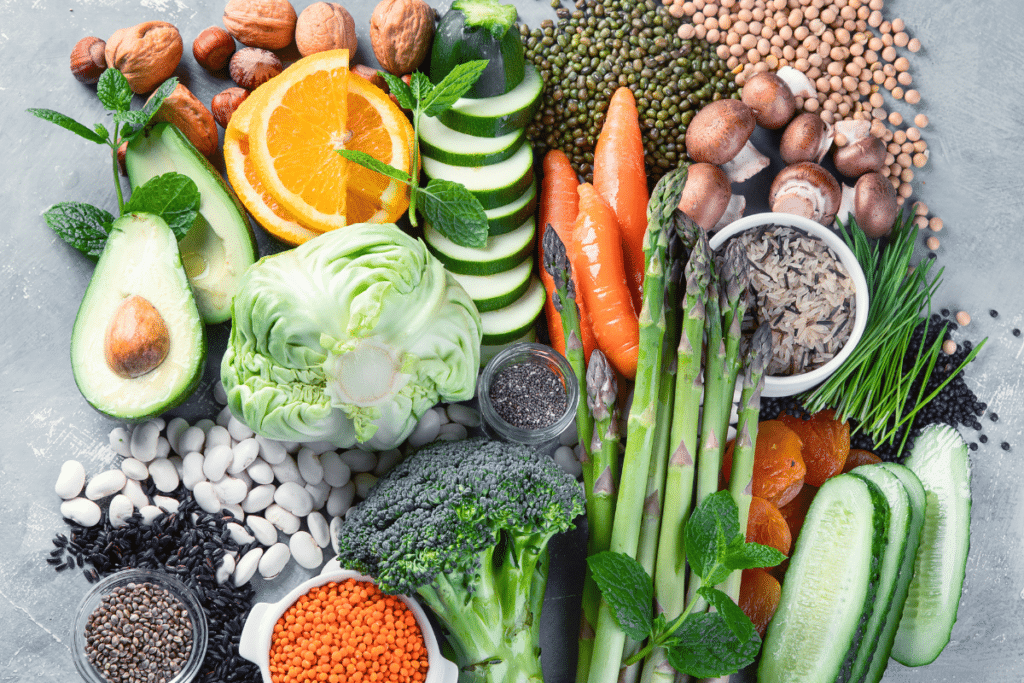
Vibrant Health: 1 of 3 Incredible Vegan Lifestyle Benefits to Amplify Awakening
You have most likely heard that a plant-based diet has many health benefits. But does avoiding animal products have any other positive effects? What is the difference between plant-based and vegan? What specific ways does a plant-based diet create vibrant health? What foods should you eat? In the first article of this vegan lifestyle series, we will explore the answers to those questions. Over the next two articles, we will look at the potential benefits of a vegan lifestyle on compassion and spiritual detoxification and advancement to amplify your awakening as a spiritual Goddess.
Plant-Based vs. Vegan: What’s the Difference?
“We do not need to eat animals, wear animals, or use animals for entertainment purposes, and our only defense of these uses is our pleasure, amusement, and convenience.”~ Gary Francione
Gary is talking about a vegan lifestyle. Someone who follows this lifestyle does not exploit animals in any way whatsoever, whether for food, clothing, cosmetics, or entertainment.
Someone who follows a plant-based diet avoids all animal products like a vegan (including meat, dairy, eggs, honey, and gelatin), usually for health reasons. They typically do not observe the other considerations of the vegan lifestyle.
Vegan lifestyle advocates want to benefit their health, reduce their impact on the suffering of all living beings, and lessen their contribution to the destruction of the planet. You see, there isn’t really such a thing as a vegan diet, because veganism applies to an entire lifestyle choice. For clarity, we will refer to the dietary aspect as a plant-based diet and the lifestyle (including food choices) as vegan.
Nowadays, more and more people recognize the potential effects of a vegan lifestyle not only on their health, but also on their practice of compassion and alignment with core values, and their spiritual advancement. Spirituality is fast becoming one of the primary reasons for adopting a vegan lifestyle.
We will explore the potential benefits of a vegan lifestyle on compassion and spiritual advancement in the following two articles of this series. This post will discuss the fundamental and practical aspects of a plant-based diet on health, which is the foundation of all growth and development.
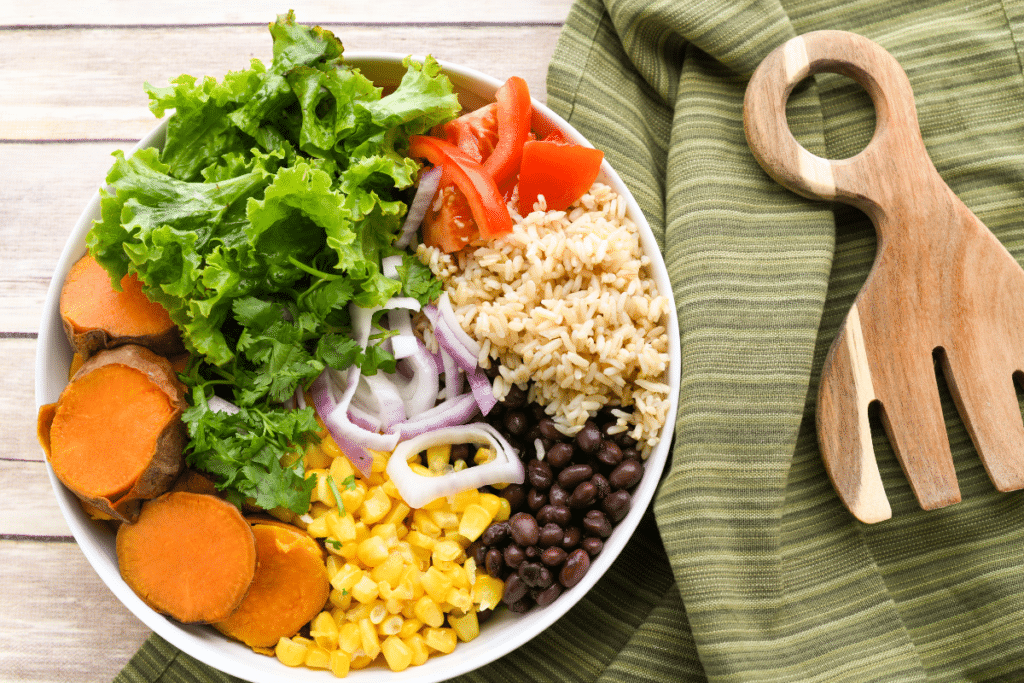
Science of Plant-Based Diets
“The beef industry has contributed to more American deaths than all the wars of this century, all natural disasters, and all automobile accidents combined. If beef is your idea of ‘real food for real people,’ you’d better live real close to a real good hospital.”~ Dr. Neal D. Barnard
Science has proven that a properly planned vegan diet is the healthiest way to eat. Plant-based foods contain more vitamins, minerals, and water than animal-based products. Additionally, they contain fiber and phytochemicals, which animal-derived foods do not. Plants also contain less saturated fat and cholesterol, the main contributors to cardiovascular disease.
There have been many scientific studies to explore the effects of a plant-based diet. According to one such study funded by the NIH/National Cancer Institute and published in the Journal of Nutrition, an official monthly publication of the American Society for Nutrition (ASN), people following plant-based diets have a much lower risk of developing chronic diseases, compared with other dietary groups.
More Nutrients, Not Less
Furthermore, those who eat a plant-based diet tend to consume MORE nutrients, phytochemicals, and omega 3 fatty acids than people who also include animal products in their diets. These are some quoted results from that particular study:
“The favorable effects of vegetarian diets are largely attributable to the increased amount of phytochemicals present in plant foods, besides the increases in fiber and other nutrients. For example, increased consumption of fruits and vegetables is positively correlated with compounds that have anti-inflammatory and antioxidant activity, neutralizing free radicals and protecting against cell damage and chronic diseases.
“Other polyphenols are elevated with increased consumption of plant foods, including isoflavones, present in soy, and lignans, found in seeds, whole grains, fruits, vegetables, and nuts. These also have protective effects against cardiovascular disease, cancer, and other chronic diseases. Plant-based diets have also been associated with more favorable profiles of fatty acids.”
One reason for this increase in nutrients is because plant-based diets usually are higher in fruits, vegetables, nuts, seeds, and pulses, all of which are high in a wide range of vitamins, minerals, and phytochemicals. It’s simply a numbers game. There is only so much food a person can eat in one day, and if all of this capacity is filled with foods with the highest abundance of nutrients, then more nutrients will enter the body each day.
Increased Awareness
Another reason for this higher intake of nutrients is that those following a plant-based diet tend to plan and consider their nutritional intake more carefully and supplement where needed. Although technically it is possible to gain everything the body needs from a vegan diet except vitamin B12, food these days is much lower in nutrients than it was 50 years ago. In light of this, the vast majority of people should consider supplementing, or at the very least, analyzing their dietary intake to ensure they are receiving the correct nutrient levels.
Plant-based eaters tend to consider their nutrient intake more carefully than meat and dairy eaters. This lack of awareness around nutritional intake is because those who eat animal products often have a false sense of security that all their nutritional needs are being met, simply because they don’t exclude animal products. In reality, the fact that they include animal products in their diet usually means consuming less nutrient and phytochemical-rich plant foods, which is where the majority of vitamins and minerals come from.
Additionally, omnivores can often overlook their need for supplementation for this same reason. If, as an omnivore, you don’t eat 3-5 portions of oily fish a week, for example, you will be lacking in omega 3 and need to supplement. None of the omnivores I know eat that amount of fish, and most do not supplement omega 3 either. Thus, you can see where the problem lies. Vegans tend to have more of an awareness of their actual nutritional intake and needs and will supplement if and when necessary.
Fewer Chemicals
In addition to an increased intake of vitamins, minerals, phytochemicals, antioxidants, fiber, and water, those following a plant-based diet consume less harmful substances. Meat and dairy are full of chemicals, hormones, and antibiotics added to the animal’s food and injected directly. This is done to speed up product output and mitigate the risks of the unhygienic conditions in which the animals are kept. While beneficial for the farmer’s bank balance, these chemicals, medicines, and hormones are detrimental to our health.
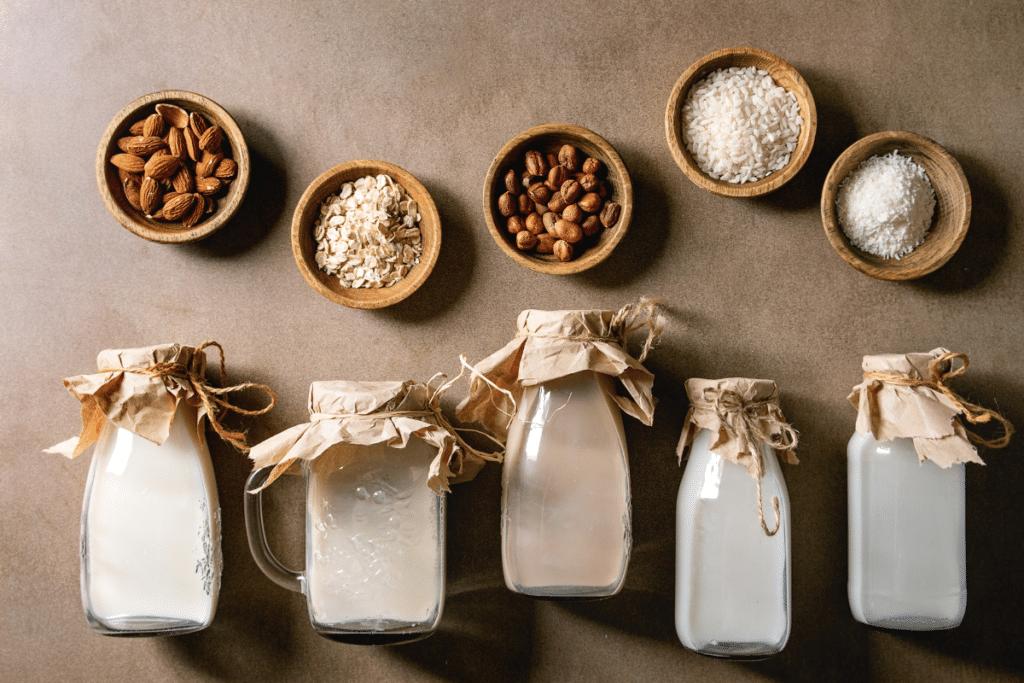
Dairy Dangers
“The human body has no more need for cows’ milk than it does for dogs’ milk, horses’ milk, or giraffes’ milk.”~ Dr. Michael Klaper
Growth hormones, animal proteins, and super-high levels of calcium in dairy products are attributed to the prevalence of hormone-based cancers, as demonstrated in the scientific study by T. Colin Campbell, The China Study. The China Study is one of the most comprehensive studies of nutrition and health in history. The study found that casein in cow’s milk can switch on cancer-promoting genes.
Casein also causes osteoporosis because it is so acidic to the body. This causes calcium from the bones to leach into the body to neutralize the acidity. Additionally, casein was linked to an increase in cholesterol in the blood, which leads to heart attack, and an increase in the development of autoimmune diseases such as type I diabetes and multiple sclerosis.
What Do Vegans Eat?
Now we have looked at how eating a diet rich in plant-based foods can provide you with more nutrition and protect you from many chronic diseases, you may be wondering what foods you should choose. This is a crucial question. It is imperative to point out that just because a food is devoid of animal products doesn’t necessarily mean it is a healthy choice.
With the rise in popularity of veganism, there has also been a rise in vegan junk food options. Highly processed foods that contain large amounts of fat, salt, sugar, refined carbs, and chemicals are not good for you, no matter if they’re vegan or not. Believe it or not, you can still get sick on a plant-based diet if you overeat processed junk food.
The optimum diet for radiant health is primarily constructed of whole foods – that is, foods that have not been refined or altered from their natural state. Or at least, very little, as in the case of dried or canned pulses and legumes.
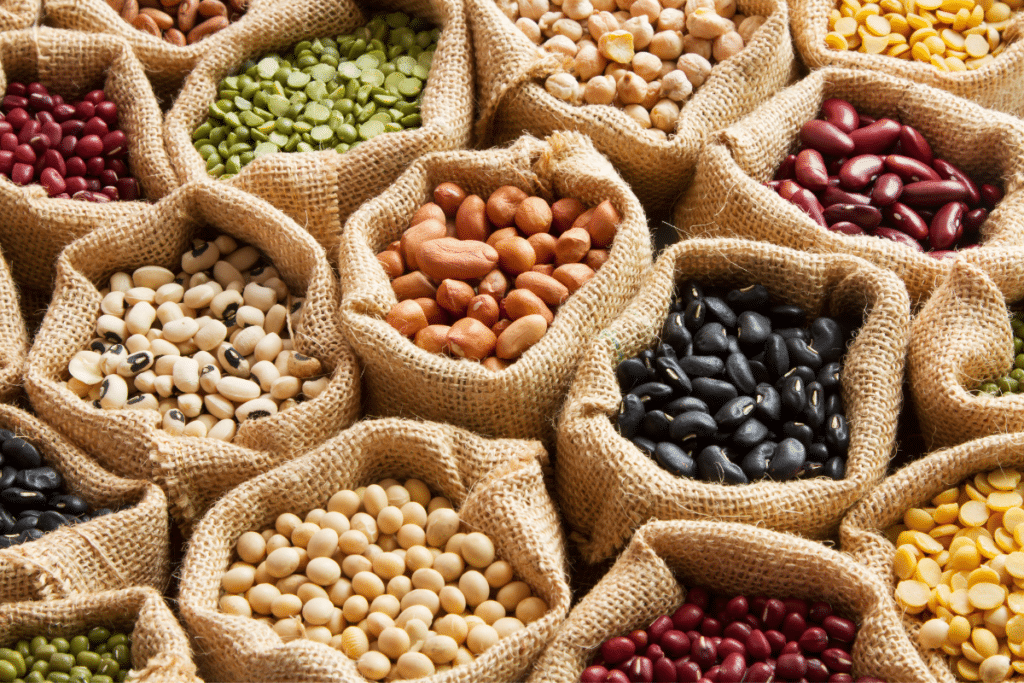
Wholefood Vegan Diet Components
The components of a health-promoting, balanced, plant-based diet can be categorized as non-composite foods. This means that they are not made up of lots of ingredients but are a single ingredient that you transform into something delicious. This is the basis of wholefood, plant-based cooking; start with ingredients that don’t have their own ingredients list.
Fruits, vegetables, nuts, seeds, pulses, grains, and beans usually come as single items, i.e., the ingredients list on the packaging (if not bought loose) is just that food – brown rice, for example. The exception is canned vegetables, beans, legumes, etc. It is fine to use these rather than the single ingredient alternative because they usually don’t contain harmful additives. The ones to watch out for are canned tomatoes, pasta sauce, and dairy alternatives, which can contain high levels of processed sugars, salt, and chemicals. Opt for organic, sugar-free versions instead.
With those guidelines in mind, these are the foods can and should be eaten regularly:
- Leafy greens (kale, spinach, chard, collard greens, herbs)
- Root vegetables (carrots, beets, turnips, parsnips)
- Salad vegetables (tomatoes, cucumbers, celery, radishes, lettuce)
- Squashes (zucchini, pumpkin, butternut)
- Cruciferous (broccoli, cauliflower, cabbage, brussels sprouts)
- Alliums (onion, garlic, leeks)
- Mushrooms (button, oyster, chestnut, shiitake)
- Fresh and dried fruits (berries, citrus, stone, tropical, melons)
- Legumes and pulses (garbanzos, kidney beans, lentils, pinto, black eye, soy)
- Whole grains (brown rice, quinoa, millet, buckwheat, whole grain bread, and pasta)
- Other starches (potatoes, sweet potatoes, corn)
- Nuts and seeds (walnuts, hemp, flax, chia, almonds, pecans, coconut)
- Sugar-free dairy alternatives (milk, cheese, yogurt)
- Fats (avocados, olives, unrefined plant oils such as coconut, olive, avocado)
- Sea vegetables (nori, dulse, wakame)
The Vegan Eatwell Guide from The Vegan Society (the world’s oldest vegan society, founded in the United Kingdom in 1944), recommends:
- Minimum 5 portions of fruit and vegetables a day (including leafy greens)
- A serving of complex carbs at each meal (whole grains, sweet potatoes, etc.)
- A serving of protein at most meals (beans, lentils, tofu, nuts, seeds, dairy alternatives)
- Nuts and seeds daily (especially walnuts and flax seeds for omega 3)
- Calcium-rich foods daily (calcium-set tofu, fortified dairy alternatives, tahini, leafy greens, dried fruit, etc.)
About Balance
That isn’t to say that you should never have any desserts or treats ever again. That would be extreme and unnecessary. It’s all about balance. A good rule of thumb to remember is the 80/20 rule. If you are nourishing your body with whole, natural, plant foods 80% of the time, it’s fine to have the odd treat to make up the remaining 20%. It is human nature to rebel against strict rules and deprivations. As soon as we deprive ourselves of something, that is all we can think about. This deprivation usually leads to bingeing and ‘falling off the wagon.’ You may have experienced this before if you have ever been on a diet. The key to vibrant health and success with the plant-based way is balance. Remember the 80/20 rule and allow yourself to indulge occasionally.
If it’s junk food that you crave – you may be surprised to learn that with plant-based versions, these types of foods don’t HAVE to be bad for you, and can actually nourish you. There is an abundance of healthy plant-based dessert recipes on the internet for you to try, using nutritious sweeteners such as dates instead of refined sugar. Raw food desserts are particularly good choices. You can also try making your own plant-based burgers. This sort of recipe still counts as a whole, natural food if you make it yourself from beans, veggies, and spices. Serve with a wholegrain bun, homemade French fries, and all the trimmings and you’ll have a meal that feels terribly indulgent but is actually really nutritious!
What Do Leading Plant-Based Doctors Eat in a Day?
Award-winning online news resource plantbasednews.org, interviewed some of the top doctors and health professionals at a nutrition conference. These health professionals included Dr. Neal Barnard, Dr. Michael Klaper, Dr. Caldwell Esselstyn, and Dr. Michael Greger. The plant-based doctors were asked what they eat in a day. The resulting film provides an excellent and entertaining guide for the optimum plant-based diet.
Detoxification and Weight Loss
Removing animal foods and processed foods from your diet and increasing your intake of whole plant foods will have a detoxifying effect. The body is detoxing all the time, but with the standard western diet, we ingest toxins faster than the body can deal with them. This toxic overload causes enormous stress on the organs and impedes proper bodily function, leading to disease. When these toxins mount up, the body stores them in the fat cells to protect the vital organs.
This is one of the main reasons many people find it hard to lose weight, no matter what diets and exercise regimes they try. If there are a lot of toxins stored in the fat cells, the body will hold onto that fat to prevent the toxins from being released into the system and causing havoc. When you begin to safely reduce the toxic build-up by cleaning up the diet, drinking lots of pure water, exercising, and removing alcohol and other intoxicants, you will find your body releasing fat that it has held onto for years. You will feel lighter, brighter, more vibrant, and alive.
Detox symptoms
When the toxins leave the body, some people can experience physical and emotional symptoms. This is sometimes referred to as a healing crisis, but it’s not a bad thing. Toxins sting on the way in and on the way out, but once they are gone, you will feel so much better. If you decide to switch to a wholefood, plant-based diet and have previously been eating animal foods, processed foods, and drinking alcohol, watch out for these symptoms:
- Headache
- Digestive upset/nausea
- Skin breakouts
- Emotional release
- Increased thirst
- Muscular aches and pains
- Tiredness and low energy
Don’t be alarmed if you notice any of these symptoms; it is just the toxins leaving your body. Drink plenty of water to flush them through. Light exercise helps because the lymphatic system doesn’t have a pump, so movement helps the toxins pass through the lymph channels and glands.
If you have emotional symptoms, this is just past issues that you have not dealt with at the time and have probably used food to cover. Journaling or talking to a trusted friend helps these to pass through. Try not to push the feelings away, they are part of your experience, and they will disappear much faster if you acknowledge them. See them for what they are – stuck energy from the past that bears no definition of who you are now. Allow them to bubble up and make their way out of your system. Meditation and sound healing can also help you to process and release emotional trauma from the past.
Conclusion
Eating a diet high in whole plant foods and limiting or eliminating animal products from your diet will provide you with many health benefits, including increased energy levels, protection against chronic disease, easier weight loss and maintenance, better sleep, improved digestion, and immune system function. You will take in more nutrients that heal your body and keep out many substances that harm your body.
In this article, we have primarily focused on the health benefits of a plant-based diet. In the next two articles in this series, we will discuss how a vegan lifestyle impacts your awakening by increasing your compassion and aiding your spiritual advancement. As always, if you have any questions at all, pop them in the comments box below, and we will be delighted to help you.





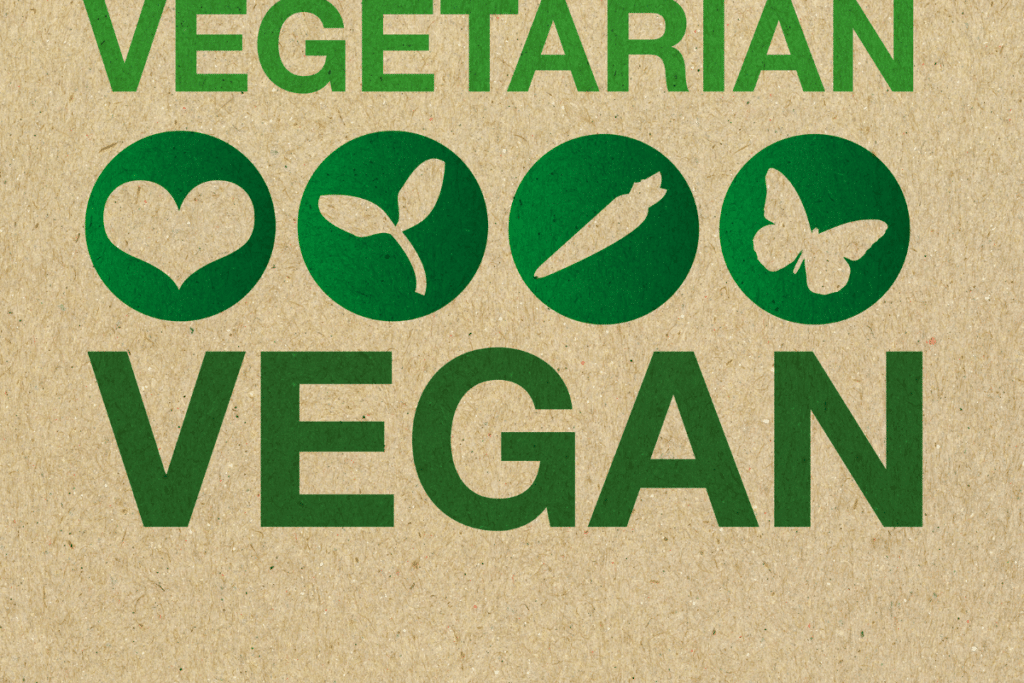

[…] There are many wild plants out there that are both edible and nutritious, often completely overlooked simply through ignorance. In this ever-growing fast world of technology and online shopping, it is really important that we don’t lose that natural gift of harvesting Nature’s treasure trove as we give ourselves the opportunity of taking out some quality time and feeding both our bodies and souls in the Garden of Eden. […]
[…] […]
[…] Natalie Heath May 27, 2022 0 Comments […]
[…] article, we discussed the health benefits of a plant-based diet. In the second article, we explored the potential benefits of a vegan lifestyle on compassion and its relation to enlightenment and spiritual evolution. In this final article, we […]
[…] heart, and spirit. Go for walks in nature, spend time reflecting on things that make you happy, and nourish your body with wholesome plant-based foods. Pamper yourself regularly with relaxing baths, massages, and other self-care rituals. Read […]
[…] such as fiber, vitamins and minerals. At every Baltrees yoga retreat, you can expect vegan or vegetarian options, which still contain the much-needed […]